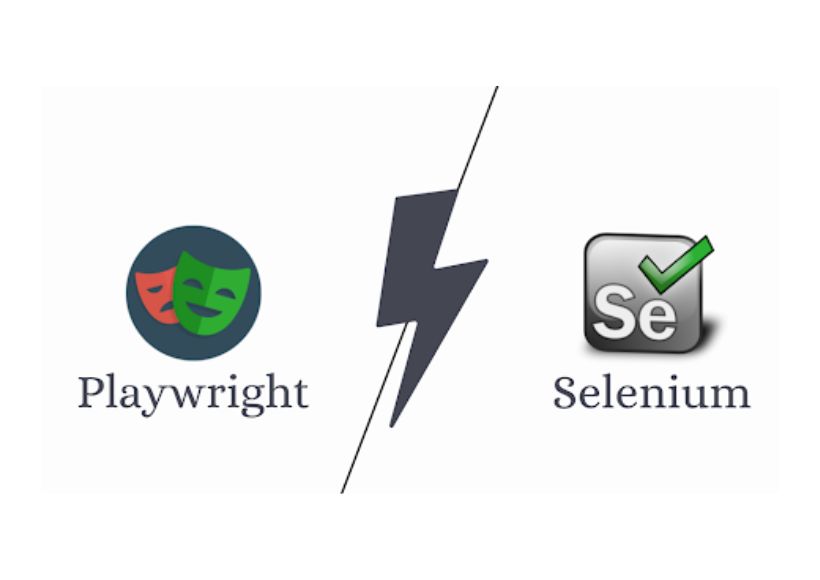Selenium Vs Playwright: Choosing The Right Automation Tool

Web automation tools such as Selenium and Playwright are great for web scraping, automating testing tasks or browser-driven actions.
Choosing between them might be a difficult task. This article already has a deep dive into Selenium and Playwright with their features, pros & cons, let’s talk more about others provided by both of them.
Table of Contents
What Is Selenium?
Selenium is an open-source web application testing framework that enables you to automate repetitive testing of web applications, such as clicking buttons and links, filling out forms or navigating between websites using real browsers on various devices with the aim to validate if everything still works according to user expectations. Manually testing all these would have taken too much time; this is where Selenium helps by simulating click-based, form entries and page navigation that will mimic real user behaviors for continuous results in testing.
Selenium WebDriver provides a mechanism to write scripts using robust programming languages like Java or Python, however, Selenium IDE records user actions for playback later. So, Selenium Grid allows you to run tests concurrently on multiple machines at the same time which makes it a necessity for current web testing! Selenium was obviously created as open-source so it will remain a fundamental element.
Key Features of Selenium
Selenium supports many languages the keys are Python Java C# Ruby JavaScript
It mainly focuses on browser support and supports major browsers like Chrome, Firefox Safari Edge etc.
Grid Features:— Selenium Grid can execute tests on multiple browsers and environments at the same time.
What Is a Playwright?
Playwright is the modern, open-source testing tool by Microsoft that automates web applications for Chromium-based browsers and makes it possible to run automated tests on different browsers and devices. It supports most of the major browsers, i.e., Chrome, Firefox or Safari, and enables testers to write scripts in JavaScript (also available Python), which helps it make it accessible & flexible.
The playwright is best for managing higher-level, harder user interactions such as mouse moves, file uploading and multi-tab/events actions that would be essential when testing an app requires multiple components. It also supports parallel testing, you can run more than one test at the same time which means your test suites run much faster. Playwright: A powerful option for fast and reusable web testing.
Key Features of Playwrighting
JavaScript-centric: Playwright was designed to be used with JavaScript, although there are wrappers for Python and other languages.
Support for multiple browsers – Chrome, Firefox, Webkit, new Microsoft Edge.
Better Automation: It means that Playwright can manage everything modern web app features such as Single Page Apps, and automation scenarios much more reliable than many other tools.
Selenium Vs Playwright — A comparative analysis
The comparison of Selenium vs Playwright can be broken into multiple factors like the ease with which one can write their scripts, browser support and is compatible or not., reliability as well handling modern web apps.
Selenium with the edge of being multilingual support (the playwright is usually focused on some better javascript implementations but offers it in multiple other languages through wrappers)
Headless Browser Compatibility: Both Playwright and Puppeteer also support multiple browsers with the ability to run them headlessly, including Edge in both cases (thanks to Chromium).
Reliability: Puppeteer claims to be a headless Chrome, Playwright is built on top of it and aims for much higher reliability in automating scenarios as well as handling modern web app features like Single Page Apps.
For tracking, playwright really shines when it comes to modern web applications that have dynamic capabilities like the ones in Play Frank’s server-side framework.
What tool Set Is The Right One To Manage Modern Web Applications?
Playwright remains a Goliath by being an excellent choice to wield with the new web application types, handling dynamic and interactive elements far more linearly. Offered by Microsoft and having advanced automation capabilities such as multi-tab testing, mouse movements, file handling… Playwright is a very strong candidate to choose the best tool currently available in current scenarios where one has to deal with complex web apps.
Playwright offers cross-browser support, is compatible with your favorite programming languages and features fast parallel testing that helps developers to test on multiple environments quicker than ever!
In addition, its, detailed debugging facilities and the ability to simulate complex real-world scenarios (such as mobile environments & offline work) really put Playwright on top of other technologies in having high-quality web applications with minimum pain.
Conclusion
Although they may better fit different tasks and requirements (which would be a great thing), none is strictly superior to the other in this manner. Selenium is different because it can support multiple languages and has more flexibility for various projects.
Inserting Playwright here should help you gain more traction in automating and testing the dynamic web apps as PlayWrite is based on modern web stacks such as HTML5, so it provides far better support for handling them than Selenium. Which one you should choose between Selenium Vs Playwright will depend on your specific requirements and the context of the project.
Also Read : What Is Coding Project And Coding Project Ideas For Beginners
